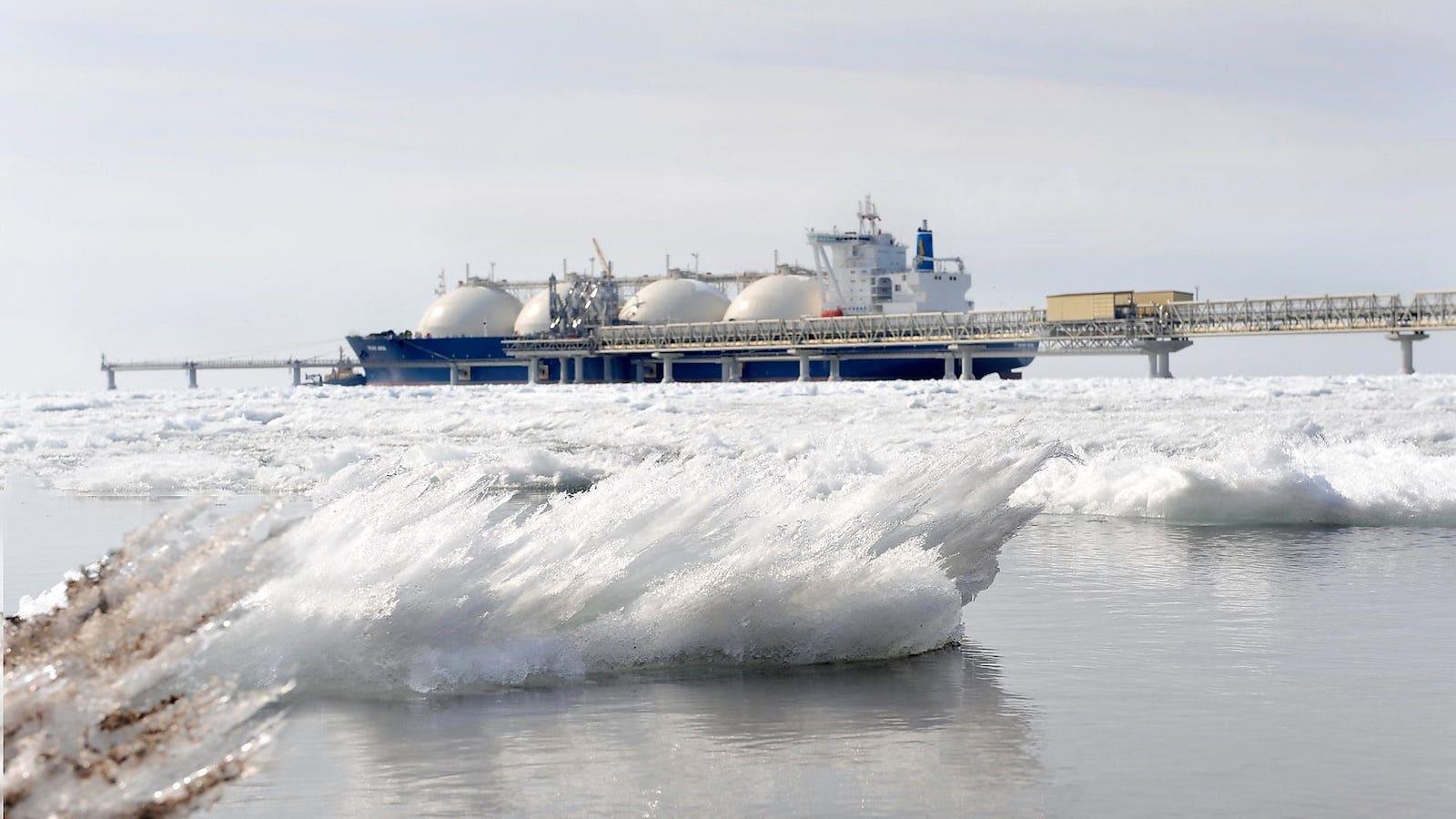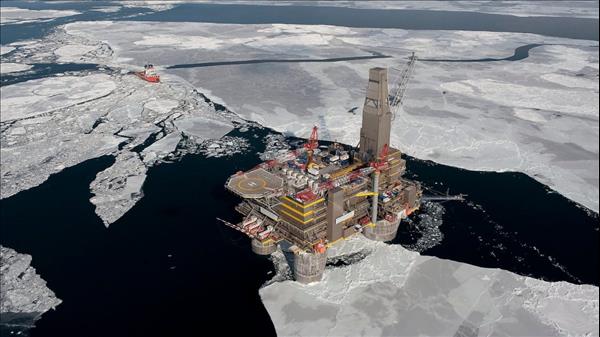
Japan Tentatively Cuts Stakes In Russia's Sakhalin 2
SEOUL – Japan's Mitsui & Co and Mitsubishi Corp announced on Tuesday that they have slashed their stakes in the Russian Far East-based Sakhalin 2 oil and natural gas project by a combined 217.7 billion yen ($1.7 billion), according to Kyodo News.
Even so, they are not pulling out of what has been touted as one of the world's largest integrated, export-oriented oil and gas projects, as well as Russia's first offshore gas project. With the Fumio Kishida government keen to hedge its energy import supplies, the two firms will still retain a 20.5% investment in Sakhalin 2.
It is just the latest confusing news from a sector that is being forced to re-align against the backdrop of the Russian invasion of Ukraine. With Russia being a core supplier of energy – most notably to Europe, which strongly condemns Moscow's assault upon Kiev – the war has exposed embarrassing dependencies.
The Japanese companies' decision to retain a presence in Sakhalin comes despite Tokyo's strong cleavage to its US ally and despite major political uncertainties hanging over the management of the project itself.
It also reflects frenzied calculations underway as Western European capitals agonize over whether – or to what extent – they can slash their dependence upon Russian energy imports as the winter cold season approaches.
With oil and gas prices soaring amid the war, energy exports represent a massive financial pipeline for the Kremlin. In 2021, Russia was the world's largest exporter of gas and its second-largest exporter of oil .
In an ongoing irony, Europe continues to buy Russian energy while simultaneously sanctioning Moscow, shutting doors to its diplomats and channeling weapons and other assistance to Kiev.
While Japan is not supplying arms to Ukraine, it is, like Europe, trapped in its own energy dilemma.
Japan, energy and Sakhalin
In June, Russian President Vladimir Putin announced that Russia would take full control of Sakhalin 2 via a new operating company. But considerable opacity clouds how this change will be managed.
“Details of the presidential decree are still not clear and we have made a conservative evaluation,” Mitsui chief financial officer Tetsuya Shigeta told a Tuesday news conference referring to the uncertainties surrounding Sakhalin 2, according to specialist website Offshore Exploration .
Thanks to the surging cost of oil and gas, the two Japanese companies – like others in the sector – enjoyed“bumper profits” for the April-June quarter, Offshore Exploration noted.
Mitsui trimmed the value of its stake by 136.6 billion yen to 90.2 billion yen at the end of June, and Mitsubishi lowered the worth of its stake by 81.1 billion yen to 62.3 billon yen, the businesses stated individually, according to MoneyMarketAdvisory.

An LNG tanker loads up at the Sakhalin 2 gas project. Image: Shell
Russian state-run energy player Gazprom has a 50% plus one share stake in Sakhalin-2, whereas Shell owns 27.5% minus one share. Mitsui and Mitsubishi maintain 12.5% and 10% respectively.
The Japanese firms' moves are a conservative play compared to that made by their European partner. Shell announced in February that it would be exiting all projects in Russia, including Sakhalin 2. That series of divestments will, the Anglo-Dutch energy multinational expects, cost it some $3 billion.
Japan is a net energy importer and faces a power conundrum due to its massive suspension of nuclear power generation following the 2011 Fukushima nuclear accident. In July, a determined Tokyo finally signaled its resolution to accelerate its return to nuclear.
But it now faces a different energy dilemma with the Ukraine war. Tokyo imports some 9-10% of its LNG from Russia, largely from Sakhalin 2. Overall, Russia is Japan's fifth largest supplier of crude oil and LNG.
These realities explain why Tokyo is hedging its bets.
Prime Minister Kishida has voiced his reluctance to pull out of Sakhalin , due to its provision of“long-term, inexpensive and stable supplies.” Some Japanese voices have even warned that , should Japan cut back on its purchases of Russian energy, regional rival China would fill the gap, likely getting the supplies more cheaply.
The just-announced moves by the two Japanese companies fall into exact line with Japanese government plans that were announced in July. Then, sources told Japanese media that Japan would maintain interests in Sakhalin 2, with Mitsui & Co and Mitsubishi Corp keeping 12.5% and 10% stakes, respectively.
Following Putin's June 30 decree, Japanese media reported on July 1 that foreign firms which wished to retain stakes in Sakhalin 2 would be required to announce their intentions within one month. Yesterday's news suggests that the two Japanese firms did, indeed, make such declarations.
In addition to Sakhalin 2, Japan is also a stakeholder in the Sakhalin 1 project via the Sakhalin Oil and Gas Development Co, a Japanese consortium that combines the Ministry of Economy, Trade and Industry, trading houses Itochu Corp and Marubeni Corp, and others. The Japanese consortium holds a 30% stake.
The principal operator of Sakhalin 1, US-based Exxon Mobil, announced in March that it was withdrawing from the project . Sakhalin 1 produces crude oil but its gas is only sold domestically. Sakhalin 2 produces some 10 million tons of LNG per year and accounts for 10% of Japan's overall annual LNG imports, according to industry sources.
All this represents a complicated chess board for the Kishida government to play upon.
“Japan's decision [to side with the West on the Ukraine War] is not without costs,” wrote Tomohiko Satake, a senior fellow at Japan's National Institute for Defense Studies in a June paper .
“Russia has been one of a few partners to diversify Japan's energy resources that are over-dependent on the Middle East. Securing a stable supply of energy resources will be the imminent task for the Japanese government in the years ahead.”
Follow this writer on Twitter @ASalmonSeoul

Legal Disclaimer:
MENAFN provides the
information “as is” without warranty of any kind. We do not accept
any responsibility or liability for the accuracy, content, images,
videos, licenses, completeness, legality, or reliability of the information
contained in this article. If you have any complaints or copyright
issues related to this article, kindly contact the provider above.


















Comments
No comment